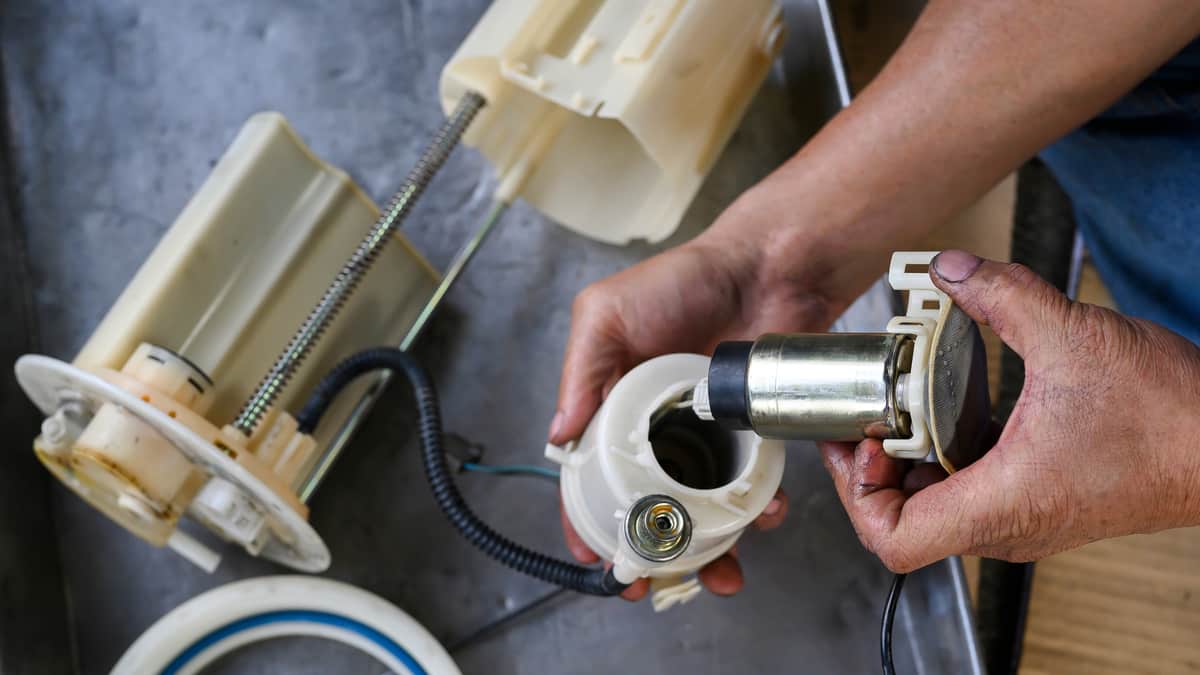The fuel pump is a vital component of your car’s engine system, responsible for delivering fuel from the gas tank to the engine. A failing fuel pump can lead to a host of problems, from poor engine performance to complete engine failure.
Recognizing the signs of a failing fuel pump can help you take prompt action to prevent more severe damage and costly repairs. In this guide, we will explore five common signs that indicate your car’s fuel pump may be failing.
By understanding these symptoms, you can diagnose potential issues early and ensure your vehicle continues to run smoothly. Whether you’re a seasoned driver or new to car maintenance, these insights will help you keep your vehicle in top condition and avoid unexpected breakdowns.
1. Engine Sputtering
One of the first signs of a failing fuel pump is engine sputtering, particularly at high speeds. When the fuel pump is not delivering a consistent flow of fuel to the engine, it can cause the engine to sputter and lose power. This typically happens when you’re driving at a steady speed and the fuel pump struggles to keep up with the demand for fuel. The engine may feel like it’s misfiring or hesitating, and you may notice a brief loss of power before the engine regains its normal operation. Sputtering can also occur when accelerating from a stop or while climbing a hill.
If you experience engine sputtering, it’s essential to have your fuel pump checked by a professional mechanic. Ignoring this symptom can lead to more severe issues, such as complete fuel pump failure and engine damage. Regular maintenance and monitoring of your fuel system can help prevent sputtering and ensure your engine runs smoothly.
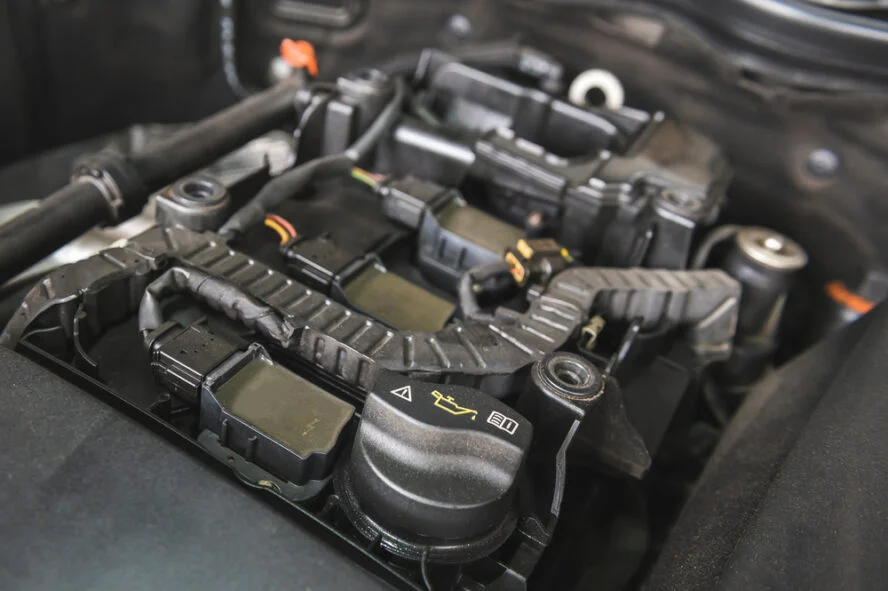
When the fuel pump starts to fail, it struggles to maintain the pressure required to deliver fuel to the engine efficiently. This lack of pressure causes the fuel supply to become erratic, leading to interruptions in the combustion process. These interruptions manifest as sputtering, where the engine seems to stumble or hesitate momentarily before regaining power. This condition not only affects the vehicle’s performance but also its safety, as sudden power loss can be hazardous, especially in high-speed situations.
To diagnose a failing fuel pump causing engine sputtering, a mechanic will typically perform a fuel pressure test. This test measures the pressure in the fuel system and compares it to the manufacturer’s specifications. If the pressure is lower than recommended, it confirms that the fuel pump is not working correctly and needs to be replaced. In some cases, other components, such as the fuel filter or fuel lines, might also be inspected to ensure no additional issues are contributing to the problem.
Preventive measures, such as using high-quality fuel, regularly replacing the fuel filter, and maintaining a clean fuel system, can help extend the life of the fuel pump and prevent engine sputtering. If you notice any signs of sputtering, it’s crucial to address the issue promptly to avoid more significant damage and ensure a safe driving experience.
2. Difficulty Starting the Engine
Another common sign of a failing fuel pump is difficulty starting the engine. When the fuel pump is not functioning correctly, it may not be able to deliver enough fuel to the engine for it to start. You may notice that the engine cranks for a longer time before starting, or it may not start at all. This can be especially noticeable in the morning or after the car has been sitting for an extended period. In some cases, the engine may start but then stall shortly after.
If you experience difficulty starting your engine, it’s crucial to have your fuel pump inspected and potentially replaced. A failing fuel pump can leave you stranded and lead to more significant issues if not addressed promptly. Regularly checking your fuel system and ensuring that your fuel pump is in good working condition can help prevent starting issues and keep your vehicle reliable.
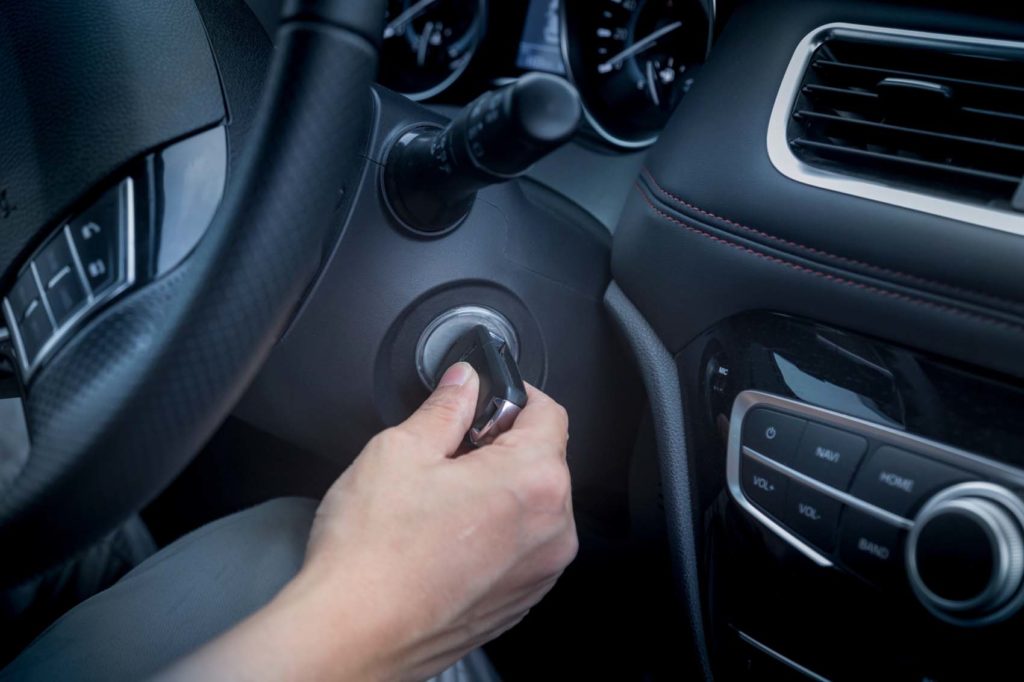
A properly functioning fuel pump creates enough pressure to deliver the right amount of fuel to the engine during ignition. When the pump starts to fail, it cannot maintain this pressure, leading to extended cranking times and difficulties in starting the engine. This situation can be frustrating and inconvenient, especially if it occurs frequently. In severe cases, the engine may not start at all, leaving you stranded and requiring a tow to a repair shop.
To diagnose a failing fuel pump causing starting issues, a mechanic may perform a fuel pressure test, similar to the one used for diagnosing sputtering. They may also inspect the fuel filter, fuel lines, and electrical connections to ensure there are no other contributing factors. If the fuel pump is determined to be the problem, it will need to be replaced to restore proper fuel delivery and ensure reliable engine starts.
Preventive measures, such as using high-quality fuel, regularly replacing the fuel filter, and maintaining a clean fuel system, can help extend the life of the fuel pump and prevent starting difficulties. If you notice any signs of difficulty starting the engine, it’s essential to address the issue promptly to avoid more significant damage and ensure a reliable driving experience.
3. Loss of Power Under Load
A failing fuel pump can cause a noticeable loss of power when your vehicle is under load, such as when accelerating, climbing a hill, or carrying a heavy load. This occurs because the fuel pump is unable to deliver the necessary amount of fuel to the engine to maintain power. As a result, the engine may struggle to perform, leading to a loss of power and reduced performance. You may notice that the engine feels sluggish or unresponsive when you press the accelerator pedal.
In severe cases, the vehicle may stall or fail to accelerate altogether. If you experience a loss of power under load, it’s essential to have your fuel pump checked by a professional mechanic. Addressing this issue early can prevent further damage to your engine and ensure that your vehicle operates efficiently. Regular maintenance and monitoring of your fuel system can help prevent power loss and maintain optimal engine performance.
When the fuel pump begins to fail, it cannot maintain the pressure needed to supply the engine with sufficient fuel, particularly under demanding conditions. This lack of fuel pressure leads to a decrease in engine performance, resulting in sluggish acceleration and difficulty maintaining speed when the vehicle is heavily loaded or driving uphill. This can be particularly dangerous when merging onto highways or attempting to overtake other vehicles, as the lack of power can lead to potential accidents.
To diagnose a failing fuel pump causing a loss of power under load, a mechanic will typically perform a fuel pressure test and inspect the fuel filter, fuel lines, and electrical connections. If the fuel pump is identified as the problem, it will need to be replaced to restore proper fuel delivery and ensure optimal engine performance.
Preventive measures, such as using high-quality fuel, regularly replacing the fuel filter, and maintaining a clean fuel system, can help extend the life of the fuel pump and prevent power loss. If you notice any signs of power loss under load, it’s crucial to address the issue promptly to avoid more significant damage and ensure a safe and efficient driving experience.
4. Sudden Engine Stalls
Sudden engine stalls are another common symptom of a failing fuel pump. When the fuel pump fails to deliver a consistent flow of fuel to the engine, it can cause the engine to stall unexpectedly. This can happen at any time, whether you’re idling at a stoplight, driving at low speeds, or even cruising on the highway. An engine stall can be dangerous, especially if it occurs in heavy traffic or at high speeds.
If you experience sudden engine stalls, it’s crucial to have your fuel pump inspected and repaired as soon as possible. Ignoring this symptom can lead to more severe issues, such as complete engine failure and the need for costly repairs. Regular maintenance and monitoring of your fuel system can help prevent engine stalls and ensure that your vehicle operates smoothly and safely.
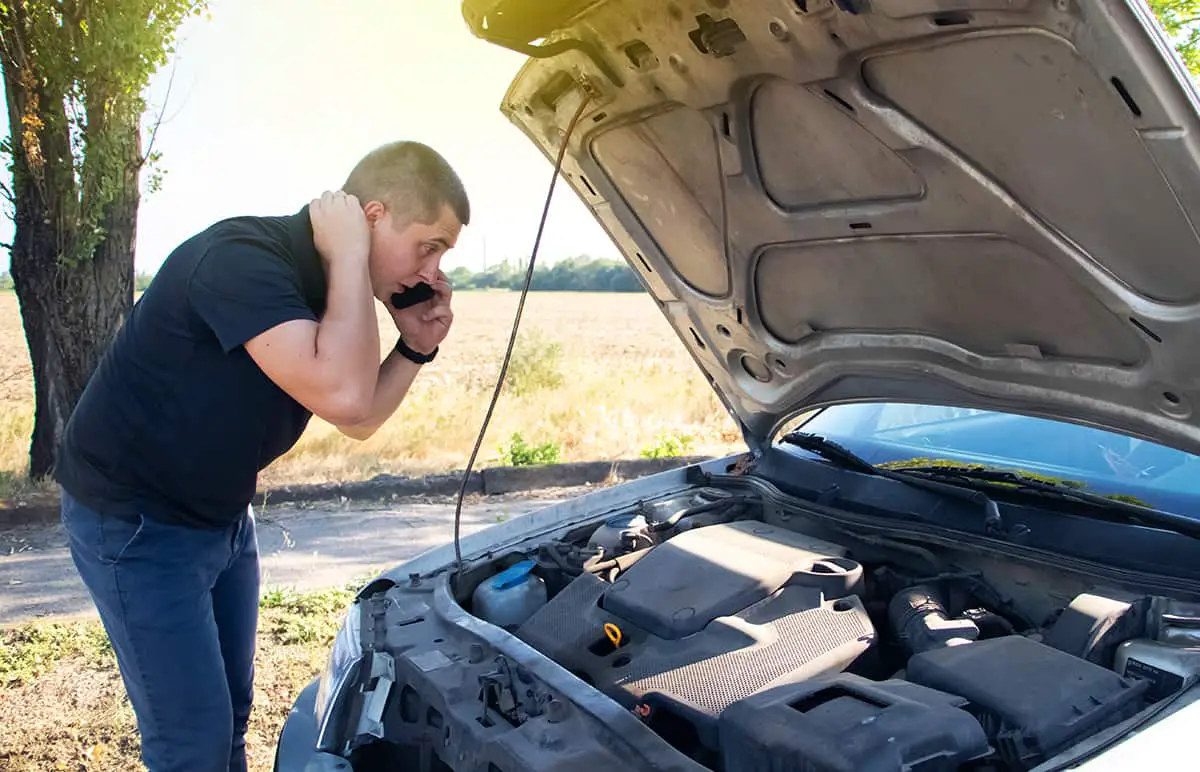
Engine stalls occur when the fuel pump cannot maintain the pressure needed to supply a consistent flow of fuel to the engine. This lack of fuel disrupts the combustion process, causing the engine to shut down unexpectedly. This situation is not only inconvenient but also hazardous, as it can lead to loss of power steering and brakes, increasing the risk of accidents.
To diagnose a failing fuel pump causing engine stalls, a mechanic may perform a fuel pressure test, inspect the fuel filter, fuel lines, and electrical connections. If the fuel pump is identified as a problem, it will need to be replaced to restore proper fuel delivery and prevent further stalling issues.
Preventive measures, such as using high-quality fuel, regularly replacing the fuel filter, and maintaining a clean fuel system, can help extend the life of the fuel pump and prevent engine stalls. If you notice any signs of sudden engine stalls, it’s essential to address the issue promptly to avoid more significant damage and ensure a safe driving experience.
5. Decreased Fuel Efficiency
A failing fuel pump can also lead to decreased fuel efficiency. When the fuel pump is not working correctly, it may deliver an inconsistent amount of fuel to the engine, causing it to run inefficiently. As a result, you may notice that your vehicle’s fuel economy has decreased, and you need to refuel more frequently. This can be accompanied by other symptoms, such as rough idling, engine misfires, and a loss of power.
If you notice a significant drop in your fuel efficiency, it’s essential to have your fuel pump checked by a professional mechanic. Addressing this issue early can help prevent further damage to your engine and ensure that your vehicle operates efficiently. Regular maintenance and monitoring of your fuel system can help maintain optimal fuel efficiency and keep your vehicle running smoothly.
When the fuel pump starts to fail, it struggles to maintain the pressure required to deliver the right amount of fuel to the engine. This lack of pressure leads to an inconsistent fuel supply, causing the engine to run rich (too much fuel) or lean (too little fuel). Both conditions can reduce fuel efficiency and lead to increased fuel consumption. Running rich can cause the engine to burn more fuel than necessary while running lean can cause the engine to work harder to compensate for the lack of fuel, leading to decreased fuel efficiency.
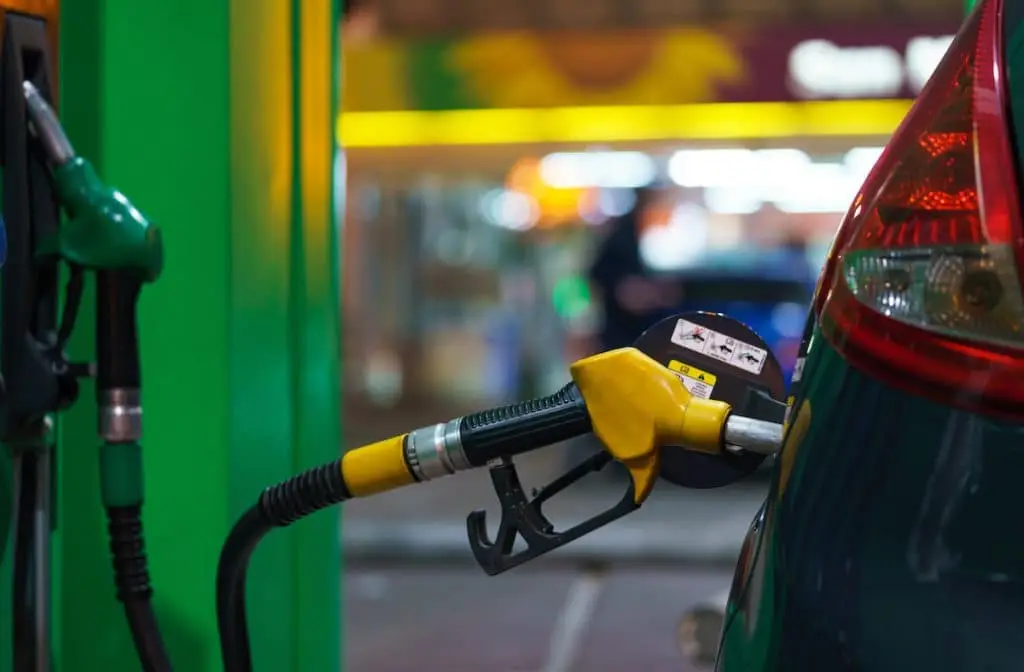
To diagnose a failing fuel pump causing decreased fuel efficiency, a mechanic may perform a fuel pressure test, inspect the fuel filter, fuel lines, and electrical connections. If the fuel pump is identified as the problem, it will need to be replaced to restore proper fuel delivery and ensure optimal fuel efficiency.
Preventive measures, such as using high-quality fuel, regularly replacing the fuel filter, and maintaining a clean fuel system, can help extend the life of the fuel pump and prevent decreased fuel efficiency. If you notice any signs of decreased fuel efficiency, it’s essential to address the issue promptly to avoid more significant damage and ensure a reliable driving experience.

